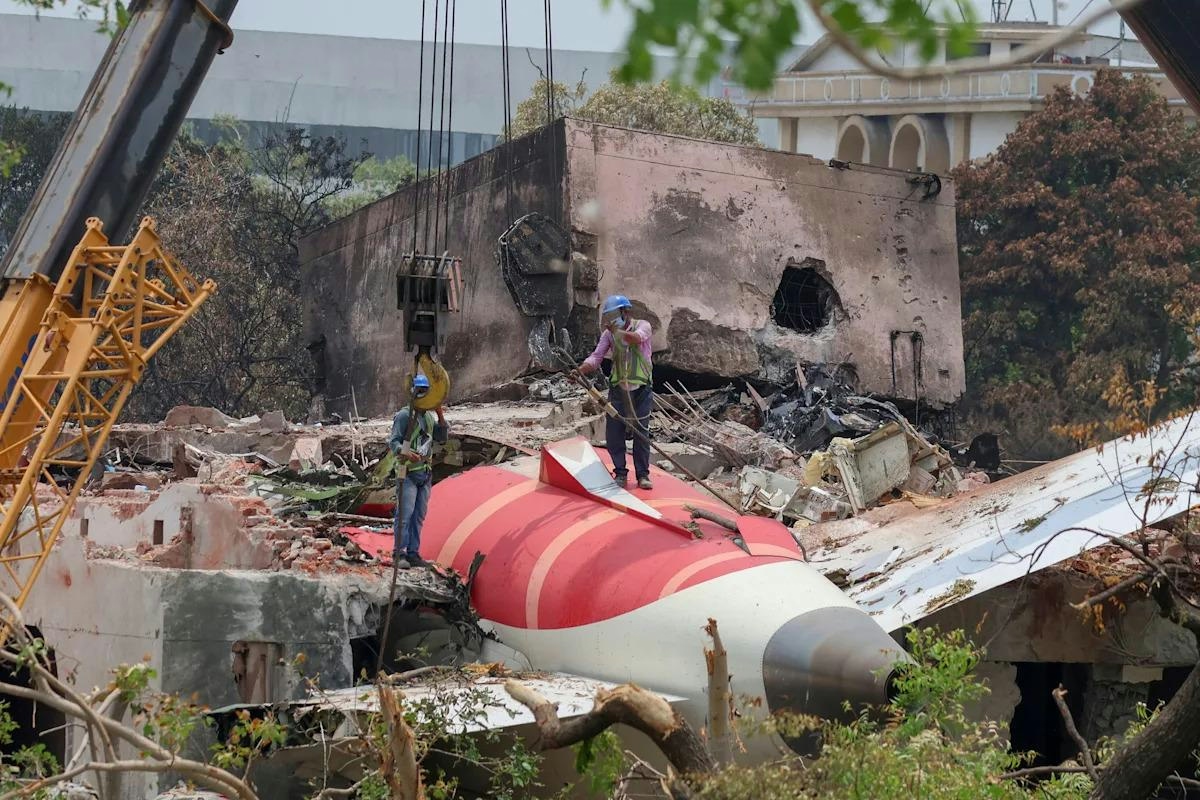AeroGenie — Votre copilote intelligent.
Tendances
Categories
Aviation Expert Criticizes Preliminary Report on AI 171 Crash for Lack of Technical Detail

Aviation Expert Criticizes Preliminary Report on AI 171 Crash for Lack of Technical Detail
The preliminary investigation into the Air India Flight 171 crash has faced significant criticism from aviation safety experts for its insufficient technical transparency and detail. Amit Singh, an experienced Boeing 777 pilot and founder of the NGO Safety Matters, contends that the interim report falls short of providing the clarity and urgency demanded by a disaster of this magnitude. The crash on June 12 resulted in the loss of 260 lives and has since raised urgent questions regarding Air India’s safety protocols and the wider implications for India’s aviation industry.
Analysis of the Report’s Findings and Deficiencies
The report begins by citing a 2018 FAA Special Airworthiness Information Bulletin (SAIB) that highlighted a potential disengagement issue in the fuel control switch locking mechanism. Despite this warning, Air India had not conducted inspections on its fleet in response to the bulletin. The mechanical failure in the fuel control switch is believed to have allowed the switches to move directly, bypassing the intended safety lock, which may have cut off fuel supply to both engines, causing their shutdown and the subsequent crash.
A key element of the report is the timeline of the engine failure. The aircraft took off at 1:38:39 p.m., reaching a speed of 180 knots by 1:38:42 p.m. Shortly thereafter, both fuel control switches reportedly moved to the ‘cut off’ position. This sequence suggests the engines lost thrust at that moment. However, the report also notes the deployment of the Ram Air Turbine (RAT)—a backup power source that activates only after both engines fail—during the initial climb immediately after takeoff. This implies the engines ceased functioning just before liftoff, yet the switches were moved to shut off later, creating ambiguity about the precise order of events.
Demand for Greater Technical Clarity
Experts emphasize that determining whether the fuel cutoff resulted from human error or a technical malfunction requires more comprehensive information. Essential details include exact cockpit actions and switch movement logs, the full transcript of the cockpit voice recorder (CVR), confirmation on whether the locking mechanisms on the fuel switches were installed or disabled, and evidence of any uncommanded system inputs or failures.
The preliminary report offers only a brief excerpt from the CVR, in which one pilot questions the other about switching off the fuel supply, and the other denies doing so. This limited disclosure contrasts sharply with other high-profile investigations, such as the 33-page preliminary report on Ethiopian Airlines Flight ET 302 (737 MAX), which contained extensive technical data, CVR excerpts, and manufacturer bulletins. By comparison, the AI 171 report reads more like a narrative and lacks actionable recommendations for immediate inspections or corrective measures.
Broader Implications for Aviation Safety and Industry Confidence
The absence of detailed technical information in the report carries wider ramifications. Aviation experts warn that such omissions could influence market reactions and shape competitor responses. The crash has already dealt a severe blow to Air India’s reputation and may undermine investor confidence in the Indian aviation sector more broadly. This incident highlights the critical need for rigorous safety protocols and transparent, thorough investigations to restore trust and prevent future tragedies.
In sum, the preliminary report on the AI 171 crash leaves vital questions unresolved, underscoring the imperative for enhanced technical detail and transparency in aviation accident investigations.

Capital A Completes Sale of Aviation Business to AirAsia X

Four Gateway Towns to Lake Clark National Park

PRM Assist Secures €500,000 in Funding

Should Travelers Pay More for Human Support When Plans Go Wrong?

InterGlobe Aviation Shares Rise 4.3% Following January Portfolio Rebalancing

Key Market Segments Shaping Airline Route Profitability Software

Locatory.com Gains Traction Among Aviation MROs and Suppliers

JetBlue Flight Makes Emergency Landing Following Engine Failure

58 Pilots Graduate from Ethiopian University

The Engine Behind Boeing’s Latest Widebody Aircraft
